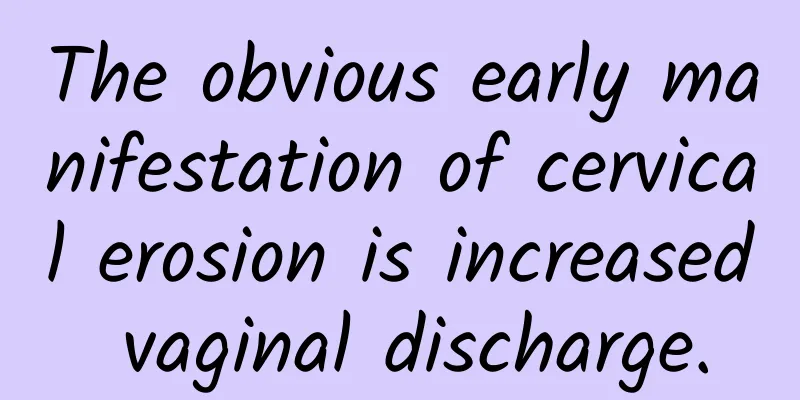Does cervical lesions require hysterectomy? It depends on the actual situation

|
Whether cervical lesions require hysterectomy depends on the actual situation of the patient. For some benign lesions, such as cervical polyps and abnormal proliferation of cervical epithelium, medication, physical therapy and other treatment methods can be selected, and no surgery is required, and no hysterectomy is required. However, for malignant lesions of the cervix, especially in the middle and late stages, hysterectomy is required in severe cases. Most women are well aware of the harmfulness of cervical lesions, which can cause irregular menstruation, dysmenorrhea, infertility in severe cases, and even the possibility of cancer. Therefore, some patients believe that they need to remove the uterus when they suffer from this disease, which can fundamentally solve the disease and avoid some complications caused by cervical lesions. So, does cervical lesions require hysterectomy? |
<<: What are the dietary treatments for cervicitis? Choose your own specific condition
>>: Why does the cervix hurt when touched? There are many reasons
Recommend
Can ovarian cysts cause amenorrhea?
Can ovarian cysts cause amenorrhea? When there ar...
15 minutes is better than half an hour! An Xinya has become thinner by running like this
Amber An, who has been working hard to lose weigh...
How much does it cost to have a medical abortion?
The price of medical abortion is not expensive, g...
Ractopamine ban lifted: Council of Agriculture: Not allowed to use in pork
The amendment to the Food Sanitation Management A...
New drug for the treatment of adenomyosis
There is no new medicine for adenomyosis. The mor...
How long does it take to cure bacterial vaginosis?
The pathogen of bacterial vaginitis is vaginal ba...
Cost of treating early cervical precancerous lesions
Nowadays, many friends suffering from cervical ca...
What causes female cervical erosion? 4 reasons that can easily cause female cervical erosion
In life, unmarried women of childbearing age shou...
What is cervical erosion and cervical hypertrophy? Do they need treatment?
Cervical erosion and cervical hypertrophy are com...
How to prevent threatened abortion in winter
Pregnant women are very worried about threatened ...
How much does abortion surgery cost?
Abortion refers to the termination of pregnancy b...
How long will the pregnancy reaction last after abortion? 3 reasons why the pregnancy has not disappeared
How long it takes for pregnancy symptoms to disap...
Fight back the shaky sleeves! Yinyin privately teaches you "3 tricks" to lose weight on your arms at home
Yin Yin, a female star with excellent dancing ski...
Why do pregnant women get candidal vaginitis?
Why do pregnant women get candidal vaginitis? Man...
What medicine can I take to eliminate uterine fibroids?
Uterine fibroids generally need to be eliminated ...









